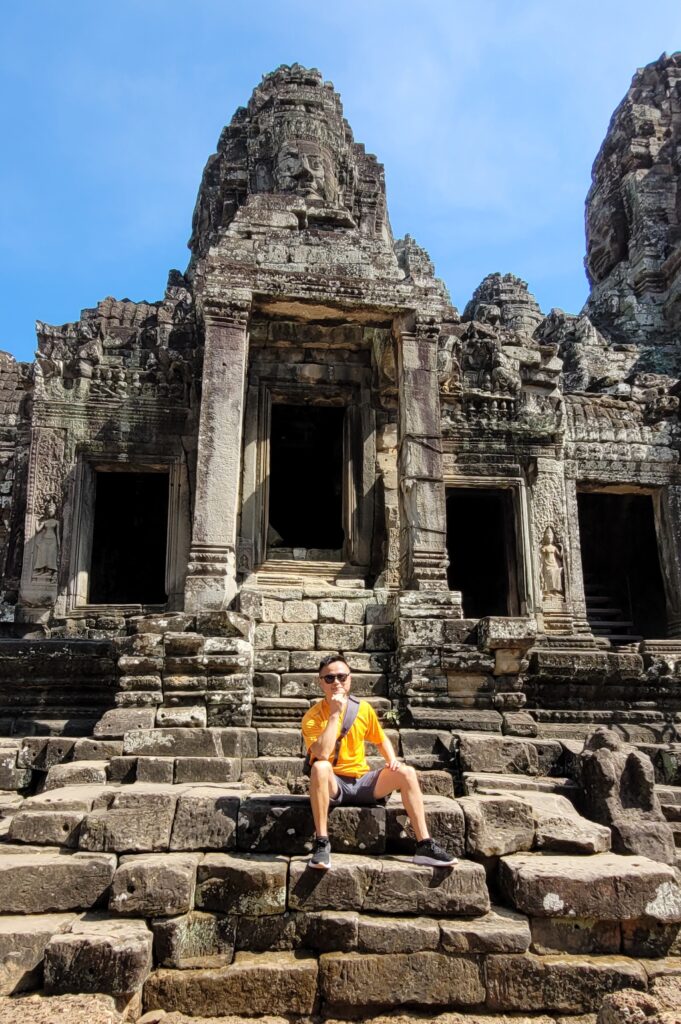
ANXIETY EPISODE WHILE TRAVELING IN VIETNAM
Part 1
I was very blessed to have the opportunity to spend a big chunk of January in Vietnam and Cambodia. Instead of writing about Vietnamese and Cambodian foods and cultures (there are already tons of these blogs out there), I wanted to share about a mental health episode I had halfway into my trip.
After visiting the incredible Angkor Wat in Cambodia, I was back in Vietnam, specifically in the central part of Vietnam at the famous little town called Hoi An. Hoi An is famous for its street lanterns, historical old town, rice fields, canals with basket boats, and access to the ocean and beaches. Originally, I was only planning to stay in Hoi An for four days and I ended up spending eight days there. This change of itinerary was due to experiencing an anxiety episode.
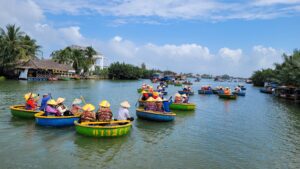
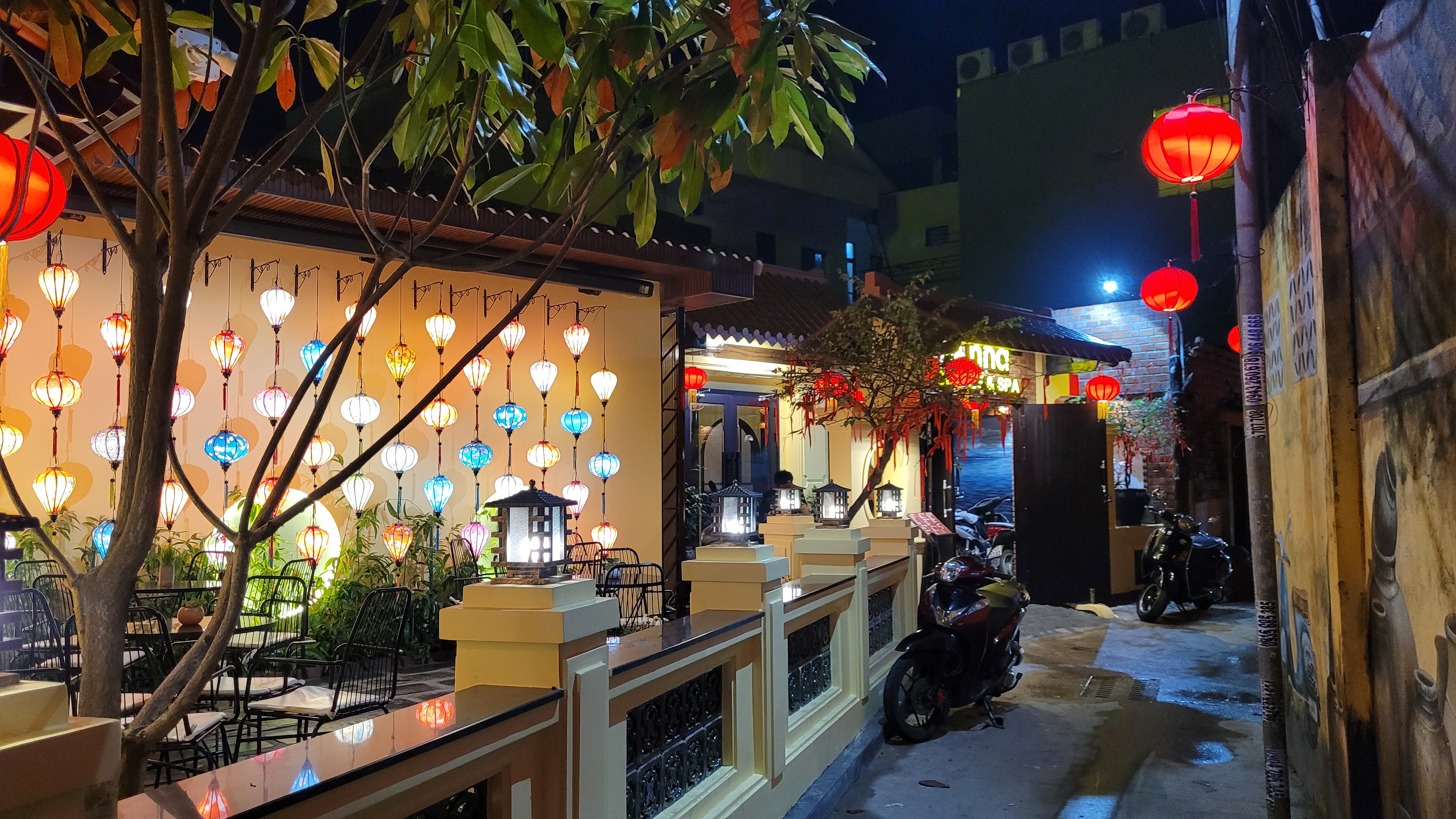
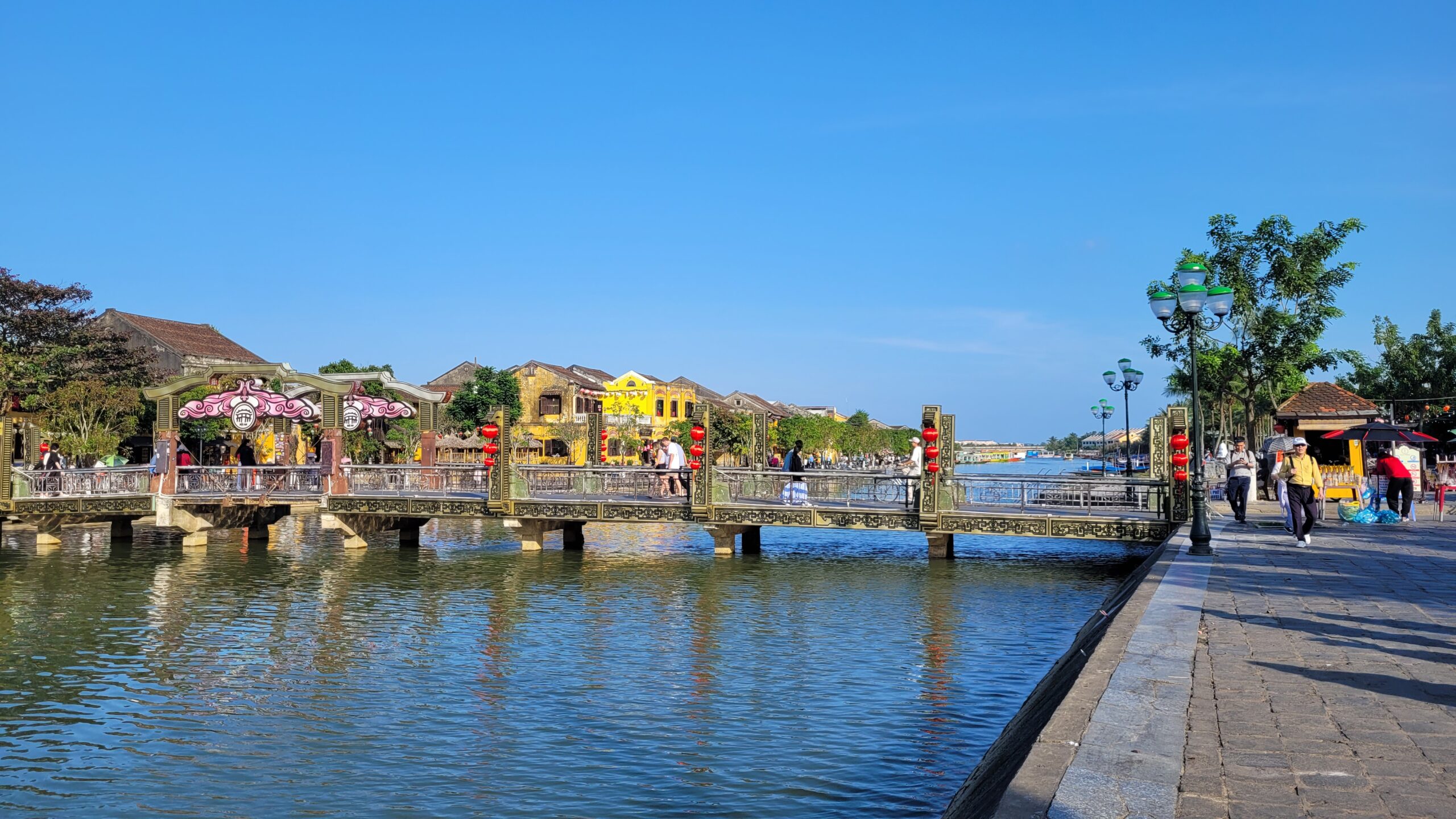
On the second day in Hoi An, late in the afternoon, I was sitting at a street café near the historical bridge by the river drinking a passion fruit smoothie. I was enjoying people-watching and getting lost in my thoughts. Suddenly, this uneasy and unsettled feeling started creeping into and forming in my abdomen; within thirty minutes, the discomfort gradually transformed into feelings of insecurity and instability. My mind was caught off guard and was trying its best to process what was happening. The only thoughts and meanings that my mind could produce were:
-
- “Enough fun and vacation, I need to get back to work.”
- “Two international trips to Asia within three months is a luxury that I don’t deserve. I should call it quits, cut my losses, and get back to work.”
- “If I don’t go back to my hotel and turn on my laptop, I am going to be so behind in my projects and work. I won’t be able to catch up with work.”
- “If I don’t work hard enough, no clients will want to hire me. I will become a failure and broke.”
- “I need to be productive with my life, not just sitting around drinking exotic fruit juice and people-watching.”
- “I need to change my return flight and fly back to the States ASAP.”
These thoughts were so intrusive and strong that I had a minor anxiety/panic attack at the café. The scariest part was that I didn’t know what to do or how to react. My whole body and mind were paralyzed and I started believing all of those thoughts. The more I believed in those thoughts, the more I got sucked into this black void of unsettled, uneasy, and depressed feelings. All I wanted to do was run back to my hotel, pack up my stuff, change my return flight, head to the airport, and fly back to the States.
Part 2
Last year, I wrote a series of blogs about my experiences dealing with anxiety (Is This How I Want to Live, Anxiety? Murphy’s Law, Challenge of Unwinding, and Monkey Mind). One of the challenges I have written about is my experience with anxiety and how our capitalist and working cultures are contributing to unhealthy habits, mindsets, expectations, and stresses in our life.
I am the byproduct of the American overworked culture. Even now, when I work 50 or 60 hours per week, part of me still sees it as a badge of honor.
The overworking mentality and culture exist in many societies and countries. It’s deeply ingrained and shaped by various cultural, economic, and historical factors. One of the factors is the societal admiration for individuals who work long hours and are perceived as dedicated. Success is frequently equated with long hours and unwavering commitment to work. People must sacrifice personal time for professional success; it is very pervasive and acceptable.
Another factor I relate to a lot is job security and economic pressures. Economic structures and job markets in many countries create a sense of competition, pushing people to work longer hours to stand out and secure their positions. In some cases, employees may feel pressured to accept demanding and even unhealthy work conditions due to the scarcity of job opportunities.
One of the factors that I am still struggling with is perceived productivity. There is a misconception that constant work and long hours equate to higher productivity. Taking breaks, practicing self-care, or going on vacation are often seen as unproductive and as a hindrance to achieving professional/career goals. It’s a common practice that people are being busy for the sake of being busy.
There is a fear of perception. For the longest time, vacation, self-care, leaving work early, and getting a good night’s sleep were frowned upon. Individuals and employees feared that they would be judged for taking time off and perceived as lazy, and lacking dedication to their work. Thus many people, especially my generation and older generations, feel guilty for taking PTO or a sick day.
Of course, there is the workplace culture and policies that overtly or covertly, and subtly discourage employees from taking breaks. Even though there is more talk and awareness about self-care and mental health in the workplace, corporate culture often glorifies long working hours and measures dedication by time spent at the office or on the computer. Employees may feel pressured and compelled to conform to these expectations to gain recognition, promotion, or job security.
Lastly, there is the fear of falling behind, a form of FOMO (fear of missing out) that I grapple with. Some employees worry that taking time off will result in falling behind at work, missing out on opportunities, including financial ones, or losing their competitive edge. This fear reinforces the need to be productive, overwork, and discourages self-care or vacation.
Here is an example of the overwork culture manifesting in our daily lives. When we meet a new person, one of the very first questions we ask each other is, “What do you do for work?” Based on my observation, this question is frequently asked in countries that have an overworked culture, including the United States and many Asian countries.
Another example of overwork culture I have seen is people, including tourists like myself, experiencing severe FOMO syndrome. Due to the fear of missing out, I feel compelled to visit all of the Instagram ‘famous’ spots or go on different excursions. Even during vacation, there is the habitual, unconscious pressure to be productive, the need to be constantly busy and be on the go all the time.
So, while I was in one of the most beautiful places in Vietnam, enjoying a passion fruit smoothie, all of the overwork factors listed above crashed into my mind, and my anxiety level skyrocketed. This experience reminded me of my time living in Hawaii after college. Even though I was living in paradise and a five-minute drive from the beach, I rarely visited the beach because I was so stressed out and obsessed with working long hours, building my career, and conforming to my boss’ unrealistic expectations. My time living in Hawaii was one of the most depressing periods in my life.
Part 3:
Throughout my second day in Hoi An, I was in communication with my good friend, Kelly. Kelly, who used to live in Southeast Asia, became my de facto tour guide, helping me plan out my trip and providing travel tips while I was on the go.
As my anxiety kept growing at the café and my mind wouldn’t stop repeating the negative statements, I forced myself to go for a walk. The walk was helpful at first because the intrusive thoughts started dissipating, but the feelings of unsettledness, insecurity, and uneasiness still spread throughout my body. That’s when I decided to openly share with Kelly how I was struggling. Below is the correspondence between us:
Me: “Tell you the truth, part of me just wanted to go back to the States lol. My anxiety about work and current big projects is making me feel unsettled. Part of me wants to chill and relax but I am finding that’s getting harder. The other part of me just wants to work.”
Kelly: “Can you work some remotely?”
Me: “Yes, I have my laptop. But I feel silly to spend all of the money to be here to just work lol.”
Kelly: “So maybe schedule in a couple hours of work each day to help ease the anxiety. Then plan for a little wandering and some relaxing. Hoi An is a great place to be then!”
Me: “True.”
Kelly: “You’re in the business of mental health, I think you’d advise your clients to take care of yourself, and if that means a little work on your trip, then that’s ok.”
The simple question from Kelly, “Can you work remotely?” triggered a positive reminder that I do have the choice, options, capacity, and capability to enjoy a vacation and do some work at the same time if I choose to. Instead of drowning in my anxiety and stress, I needed to take advantage of this privilege.
Through this simple exchange of supportive and reassuring messages, I was able to start calming my anxiety. My rational brain began forming and contributing new and positive thoughts to counter my anxious ones:
-
- “I have choice and options to do whatever I want, including working or not working.”
- “It’s healthy to relax and enjoy life.”
- “I have great clients. They are not going to abandon me just because I am having a vacation.”
- “Yes, I have important tasks that need to be completed and none of these tasks are urgent.”
- “I have a great team back at home and they have my back.”
- “What’s the point of working so hard if I can’t enjoy the outcomes?”
- “I can always walk to a coffee shop down the street and do some work.”
Part 4:
From the onset of my anxiety attack, it took me almost two days to return to my regular baseline. Once my nerves were calmed, I was able to look back at the whole experience and reflect. The most important lesson that I learned from this whole experience is that I am recommitting myself to continuing to free myself from this cycle of anxiety and toxic stress.
Also, part of the stress and anxiety that I was experiencing was the external pressure and expectations of FOMO, feeling the need to visit all the sightseeing spots or go on different excursions. Instead of falling victim to this mentality that I have to be on the go all the time, I doubled down on extending my stay in Hoi An, booked an affordable hotel close to the beach, cleared all of my preplanned schedules, chilled, and learned to follow the flow by listening to what my body and mind wanted to do. In between chilling, when I felt the need to do some work to appease my anxiety, I took my laptop to a local coffee shop.
I want to emphasize that when I decided to forego all of my remaining preplanned itineraries and allow my mind and body to follow the flow, for the first time in a long time, I truly felt relaxed and chilled.
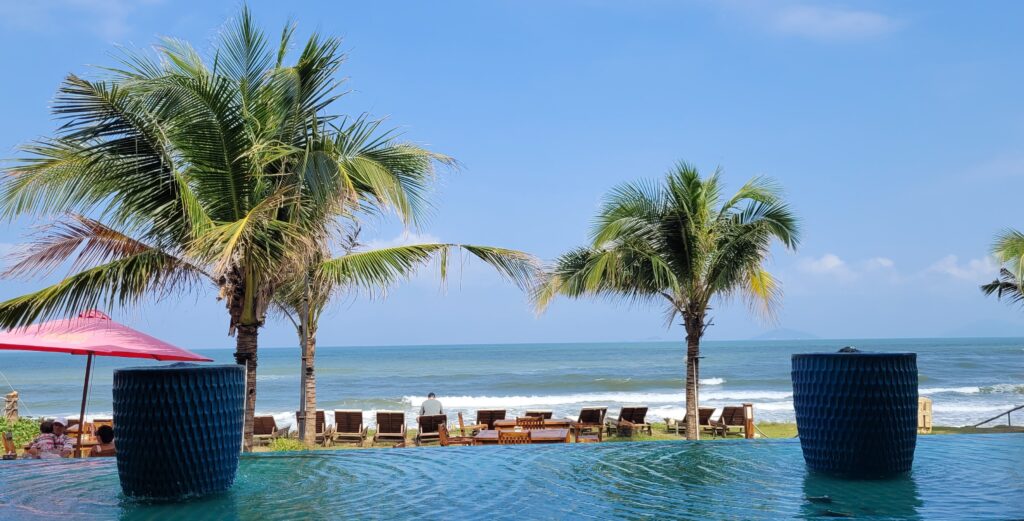
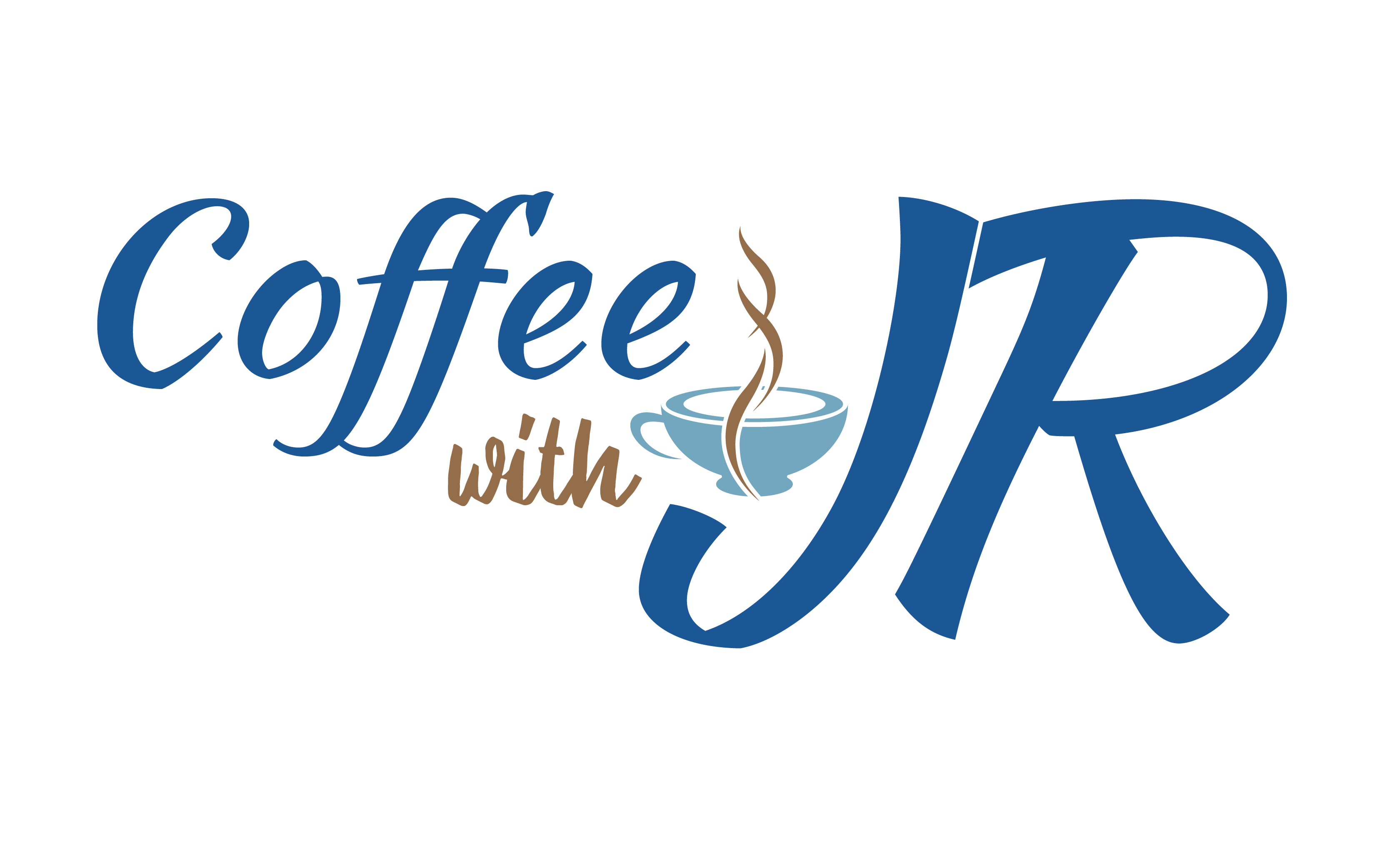
Recent Comments